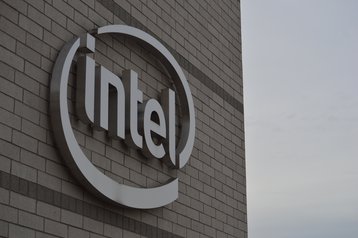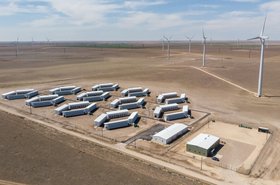Intel has pushed back its construction timetable for its $20 billion investment in two chip factories in Columbus, Ohio, citing market challenges and the slow roll out of funding from the US government.
The factories were due to start production next year but, according to a report in the Wall Street Journal, construction work at the site is now not expected to be completed until 2026.
Intel confirmed its plan to build the Ohio fab January 2022, with CEO Pat Gelsinger saying at the time that the company could spend as much as $100bn on the site over the next decade, a figure that would mark the largest single private investment in the state.
The initial phase of the development will see the construction of two fabs set on 1,000 acres of land, with the option to build up to eight fabs across 2,000 acres. Once up and running, the first two sites, in Licking County, are set to employ at least 3,000 people. Currently, Intel has between 800 and 900 construction workers on the project, with that number expected to grow to several thousand by the end of the year.
The WSJ report says Intel has yet to receive anticipated funding towards the project from the US Chips Act, a $53bn government incentive package agreed two years ago to drive investment in US chipmaking. Grants for the company, and other semiconductor producers, are expected to be awarded in the next few weeks.
In a statement provided to DCD, Intel said that while the company had not met the 2025 production goal it anticipated when the project was first announced, “construction has been underway since breaking ground in late 2022 and we have not made any recent changes to our pace of construction or anticipated timelines.”
It continued that the Intel remains "fully committed" to the project and is "continuing to make progress on the construction of the factory and supporting facilities this year."
"As we said in our January 2022 site-selection announcement, the scope and pace of Intel’s expansion in Ohio may depend on various conditions. We broke ground on Ohio One ahead of schedule and we are maintaining construction progress. Typical construction timelines for semiconductor manufacturing facilities are 3-5 years from groundbreaking, depending on a range of factors," the statement said.
In addition to the construction that has already been carried out, Intel said it has also "hired more than 100 Ohioans, including some who are training at its locations in Arizona and Oregon."
Intel is not the only company that has been forced to push back timelines at under-construction chip fabs in recent months.
At the start of 2024, TSMC chairman Mark Liu admitted that production at the company’s second, more advanced, fabrication plant in Arizona wouldn’t be starting in 2026 as originally proposed. Instead, he said the site wouldn’t be operational until 2027 or 2028.
TSMC has been plagued by succession challenges at its Arizona site, with the project suffering multiple delays and issues souring the necessary talent.







